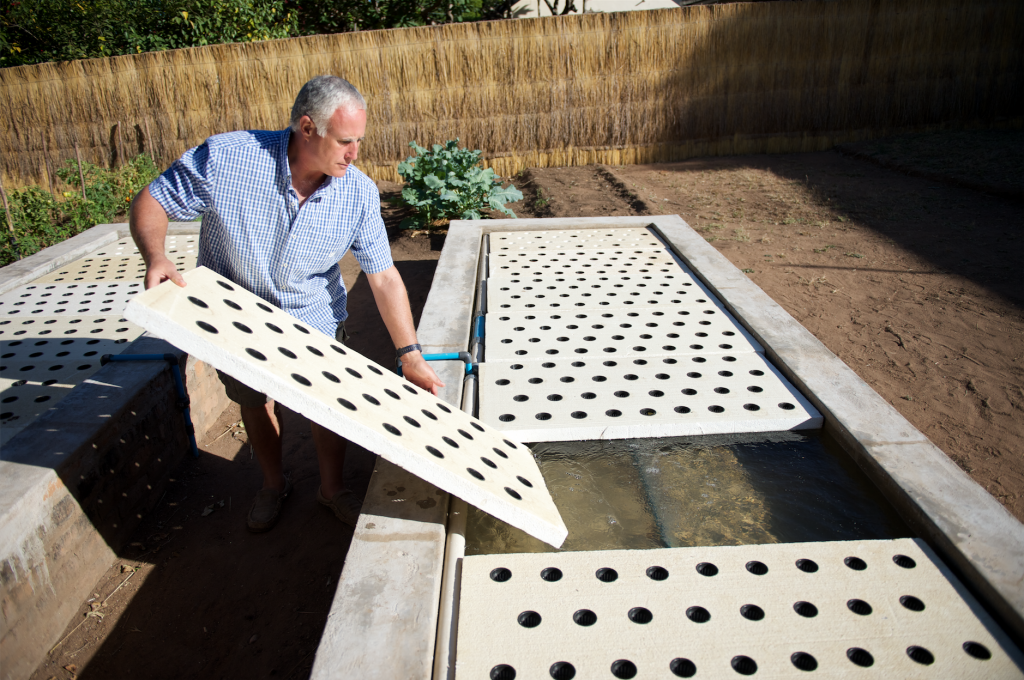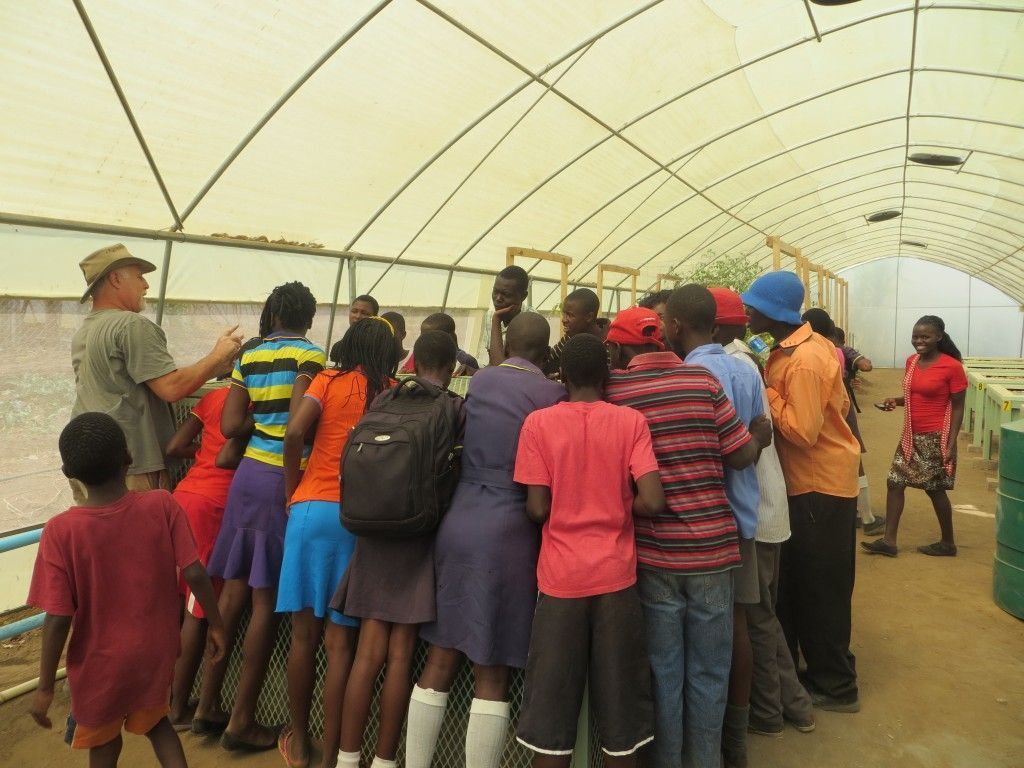History is full of missionaries who found success by blending in with the local culture. TEAM missionary Dave Jereb found it while building a reputation as a crazy, old, white guy.
Dave and his wife, Cheryl, came to Zimbabwe with a vision to provide sustainable food sources and job training for needy communities through aquaponics, a self-contained system for growing produce and fish.

Aquaponics is a closed system of farming that requires fewer resources than traditional methods. Photo by TEAM
The fish live in tanks, and the nutrient-rich water is piped into plant beds where crops grow hydroponically. The plant roots cleanse the water, which is then pumped back into the fish tanks. Within a few months, fresh vegetables are ready for harvest, and a little while longer, fish are ready to fry.
In 2014, Dave built the first, experimental, aquaponics unit and hired Zimbabwean pastor and gardener Joshua Masunga to help tend the system and educate the community. The small team calls the project “ Fish for Life.”
A Growing Vision
After sharing the fruits of a successful harvest with their neighbors, the Jerebs and Joshua began to put more focus on their large-scale project: an aquaponics system to feed patients and workers at the local mission hospital.
The Jerebs started a fundraising campaign for the endeavor, as people learned about the project, they jumped on board. By May 2015, a greenhouse to warm the water in the tanks had been built, and Dave, Joshua and a team of American volunteers got to work on the actual aquaponics unit.
The hospital unit’s size and location made it much more visible to the community than the previous unit, which had sat in the Jerebs’ front yard. It also drew much more skepticism.
“The general consensus of the community is that Dave must be a crazy, … old, white guy who doesn’t know how to grow anything,” Cheryl wrote in July. “Who would ever grow plants in just water and stone?”
Despite the locals’ uncertainty, donors helped Fish for Life buy solar panels to power the system and add employment hours for maintaining the system. After months of hard work, the hospital kitchen received its first harvest of tomatoes in October , and somehow, the old, white guy didn’t seem so delusional after all.
God’s ‘Impossible’ Provision
With the proof of a successful harvest, the community’s curiosity is growing . And with that curiosity has come God-given opportunities to build relationships.
“It is exciting that they are coming to us,” Dave said. “These relationships are open doors to talking about how the Lord is their provider. When they visit and see how plants can grow in just water and stones, they see how it can only be of God that these ‘impossible’ things can happen. ”
In recent years, Fish for Life has begun taking its “crazy” message of God’s provision to area high schools, with the dream of setting up smaller units and teaching students a sustainable way to feed their families.
“The excitement was very contagious and such an encouragement to see the Lord’s plan for Zimbabwe’s youth,” the Jerebs wrote after taking nearly 100 students on a tour of the greenhouse. “His perfect provisions will bring HOPE to this land.”






















